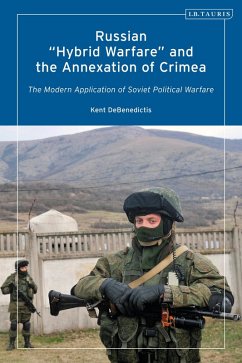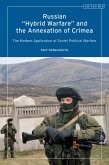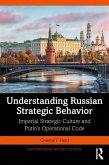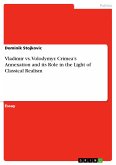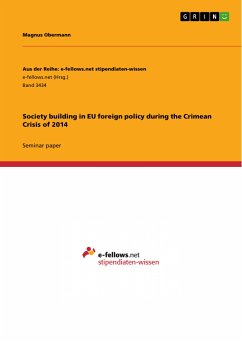Western academics, politicians, and military leaders alike have labelled Russia's actions in Crimea and its follow-on operations in Eastern Ukraine as a new form of "Hybrid Warfare." In this book, Kent DeBenedictis argues that, despite these claims, the 2014 Crimean operation is more accurately to be seen as the Russian Federation's modern application of historic Soviet political warfare practices-the overt and covert informational, political, and military tools used to influence the actions of foreign governments and foreign populations.
DeBenedictis links the use of Soviet practices, such as the use of propaganda, disinformation, front organizations, and forged political processes, in the Crimea in 2014 to the Warsaw Pact invasion of Czechoslovakia in 1968 (the "Prague Spring") and the earliest stages of the invasion of Afghanistan in 1979. Through an in-depth case study analysis of these conflicts, featuring original interviews, government documents and Russian and Ukrainian sources, this book demonstrates that the operation, which inspired discussions about Russian "Hybrid Warfare," is in fact the modern adaptation of Soviet political warfare tools and not the invention of a new type of warfare.
DeBenedictis links the use of Soviet practices, such as the use of propaganda, disinformation, front organizations, and forged political processes, in the Crimea in 2014 to the Warsaw Pact invasion of Czechoslovakia in 1968 (the "Prague Spring") and the earliest stages of the invasion of Afghanistan in 1979. Through an in-depth case study analysis of these conflicts, featuring original interviews, government documents and Russian and Ukrainian sources, this book demonstrates that the operation, which inspired discussions about Russian "Hybrid Warfare," is in fact the modern adaptation of Soviet political warfare tools and not the invention of a new type of warfare.

